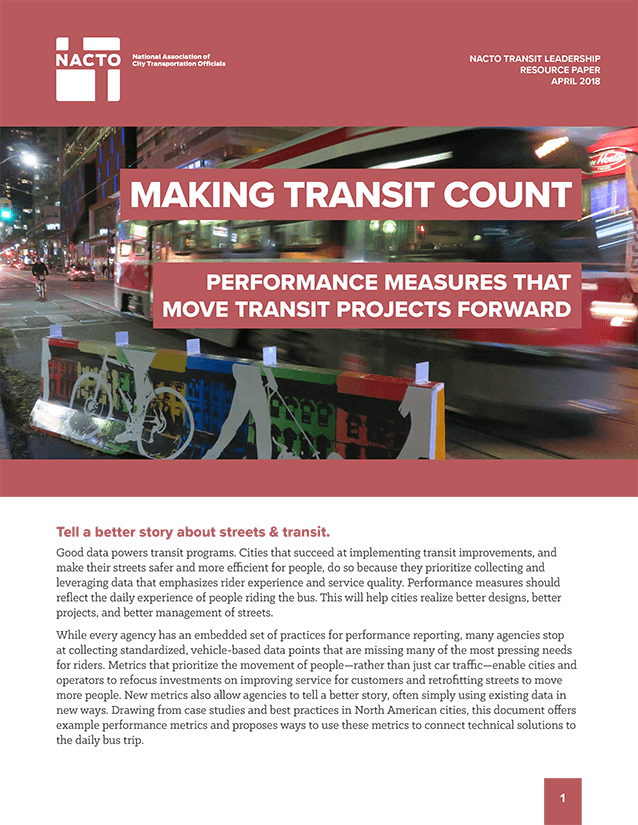 New performance metrics put reliable, efficient transit—the efficient movement of people—at the center of urban streets.
New performance metrics put reliable, efficient transit—the efficient movement of people—at the center of urban streets.
Good data powers transit programs. Cities that succeed at implementing transit improvements, and make their streets safer and more efficient for people, do so because they prioritize collecting and leveraging data that emphasizes rider experience and service quality. Metrics that prioritize the movement of people—rather than just car traffic—enable cities and operators to refocus investments on improving service for transit riders and retrofitting streets to move more people.
Making Transit Count is a set of guidelines that will help cities and transit operators tell a more complete and compelling story about transit, and about streets. The resource paper, which draws from best practices and case studies in North American cities, offers example performance metrics and proposes ways to use these metrics to connect technical solutions to the daily bus trip.
From total person throughput, to excess wait time and spatial equity measurements, the latest NACTO Transit Leadership Paper shows how to use data to tell a complete story.
Download Whitepaper (PDF) >
NACTO Transit Street Design Guide >

Making Transit Count is part of NACTO’s Transit Leadership series. Developed with funding support from TransitCenter, the Transit Leadership resource papers convene key issues at the nexus between city streets and on-street transit, and provide guidance for cities, transit operators, and their partners to transform their streets and cities to support better transit for all.
Read the rest of the Transit Leadership series:
The Structure of Success: A Playbook for Cities to Build Successful Transit Programs
Curb Appeal: Curbside Management Strategies for Improving Transit Reliability